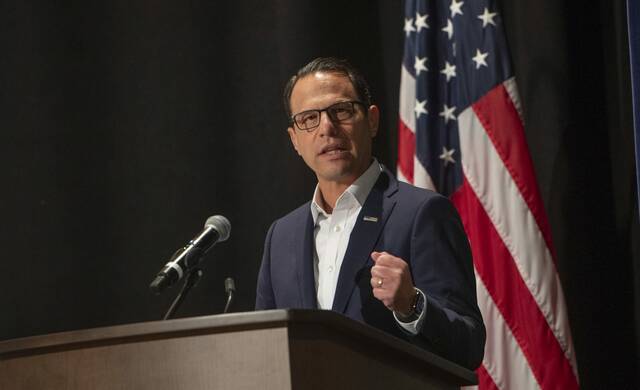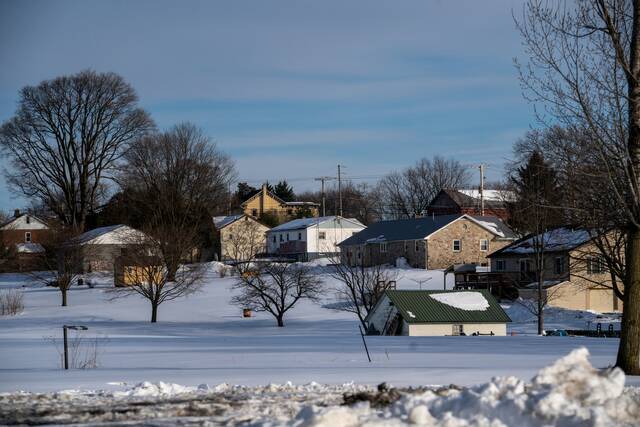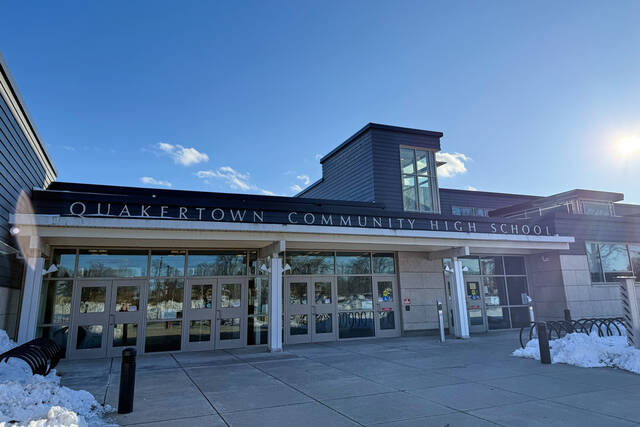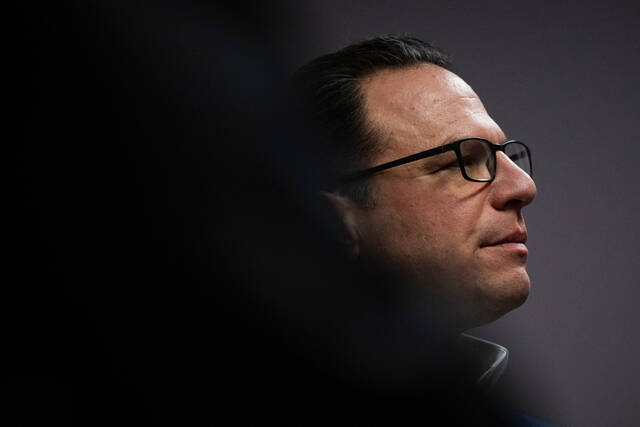Pennsylvania Gov. Josh Shapiro is hoping to capitalize on what he predicts would generate more than a quarter-billion dollars in revenue if the state legalizes adult-use marijuana.
During his budget address Tuesday, he pointed to neighboring states Ohio, New York, New Jersey, Delaware and Maryland that have legalized recreational use of marijuana.
“We are losing out on an industry that, once fully implemented, would bring in more than $250 million in annual revenue,” he said. “Our failure to legalize and regulate this only fuels the black market and drains much-needed resources for law enforcement.”
Under Shapiro’s proposal, legalization would be effective July 1 with sales beginning Jan. 1. There would be a 20% tax on the wholesale price. Revenue of $5 million would be put toward “restorative justice initiatives,” according to a statement from his office. He called for the expungement of criminal records for those accused of having a small amount of marijuana.
In addition, other revenue would be directed as follows:
• $5 million to the state department of agriculture for operations.
• $2 million to state police for enforcement.
• $500,000 to the state department of revenue for administration.
• Anything remaining to the general fund.
Shapiro encouraged lawmakers to come up with a bill that ensures the industry is regulated and taxed responsibly while creating jobs. All of the states neighboring Pennsylvania, except West Virginia, allow recreational marijuana sales, though most programs either have yet to start or are in their infancy.
“It’s time to catch up,” Shapiro said.
Pennsylvania Senate President Pro Tempore Kim Ward, R-Hempfield, was skeptical of the proposal and the planned spending, saying legalizing marijuana “is not as simple as (Shapiro) makes it sound.”
“As far as marijuana legalization is concerned, the governor is making a big assumption that it will pass the Legislature. He’s spending a lot of money and not really telling us where we are getting the money,” Ward said. “The next thing will be fights over who is going to control what where, how is it going to be distributed, where is it going to be distributed. This stuff takes time.”
The Shapiro administration projects revenue could total $157 million for the 2026-27 fiscal year and increase to $255 million the following fiscal year. The experience of neighboring states might offer some clues as to how new programs can evolve.
They’re bringing in revenue from legalizing adult-use marijuana, but how much?
New York
Legal sales of adult-use marijuana started within the borders of Pennsylvania’s northern neighbor in December 2022, according to the Urban Institute. There is a 13% excise tax and additional potency-based tax.
By the end of 2023, the first full year of legalization, the Office of Cannabis Management said tax revenue was expected to exceed $16 million from more than $150 million in sales.
Officials said they expected the market to grow in 2024 with hundreds more licenses to be approved. Previous reports estimated tax revenue could top $1 billion.
Ohio
Legalization of adult-use marijuana was approved in November by a majority of voters, but sales have yet to begin.
Sales include a 10% excise tax, according to the Urban Institute. A study conducted by the Ohio State University Drug Enforcement and Policy Center estimated revenue could range from $276 million to $403 million by the fifth year of the program’s operation, according to the Ohio Capital Journal.
New Jersey
New Jersey charges 6.625% sales tax on adult-use marijuana products, according to the state Cannabis Regulatory Commission. A small social equity excise fee is imposed on cultivators and wholesalers.
Since sales there began in April 2022, they have increased every quarter with $176.9 million in the third quarter of 2023, according to the commission. There has been $50.4 million collected in sales taxes and $2 million brought in through the excise fee.
Past projections from state officials indicated revenue could reach $2 billion.
Delaware
Sales have not begun after the state legalized adult-use marijuana in April 2023 and established a 15% excise tax, according to Urban Institute. A state report indicates Delaware could rake in $43 million with legalization.
Maryland
Legal sales began in July 2023 with the state levying a 9% excise tax, according to the Urban Institute. Sales totaled $331.8 million as of December, with $3.6 million of that coming in the first weekend of legal adult use, according to the Maryland Cannabis Administration.
More than $12 million in tax revenue was collected between July and September 2023, according to the state comptroller. A study by Cannabis Public Policy Consulting showed the state’s sales could reach $1 billion.
Colorado
Many of the states surrounding Pennsylvania have programs in their early stages, while Colorado began legal sales in January 2014 after the measure was approved by a majority of voters. There, a 15% excise tax is paid on sales by customers, and a 15% excise tax is imposed on the transfer of retail marijuana between licensees, according to the state department of revenue.
Since its inception, sales of medical and recreational marijuana have totaled $15.4 billion and more than $2.6 billion in tax revenue has been generated, according to the Colorado Department of Revenue. Data showed it took years for the revenue to ramp up, topping out at $423 million 2021.
Polls show growing support
Most Americans, including Pennsylvania voters, support legalization.
Public support for legalization of marijuana is at its highest level ever, with more than 70% of Americans in favor of the move, according to an October 2023 Gallup poll. That’s the highest level recorded by Gallup since marijuana polling started in 1969, when 12% of people surveyed were in favor of the move.
Two out of three registered voters in Pennsylvania favor legalization, according to a poll released last week by Franklin & Marshall College in Lancaster.
Proceed with caution
Tim Phillips, director of the Westmoreland County Drug Overdose Task Force, expects legalization of marijuana in Pennsylvania is “going to happen” sooner or later, particularly because of increasing public support.
He hopes the state government exercises caution.
“We need to look at the best practices of other states that have done it and see the damages it has done in their communities, as well,” he said. “I think there is a right way and a wrong way to do it.”
He is particularly concerned about the potential impacts of marijuana getting into the hands of underage youths through what he referred to as “diversion” — legally purchased drugs being resold illicitly.
People might also still end up buying marijuana outside of officially approved stores, even if it were legalized, because of cheaper prices of black-market drugs, he noted.
“Let’s say I purchase my recreational marijuana at a marijuana shop. I could sell it to maybe my young nephew or somebody on the street,” he explained. “We see marijuana from other states now coming into Pennsylvania, and it’s being diverted from their supply. It’s coming here on the streets from the black market. Our elected officials seem to think (legalization) is going to stop the black market. The black market is already here waiting for this opportunity.”








